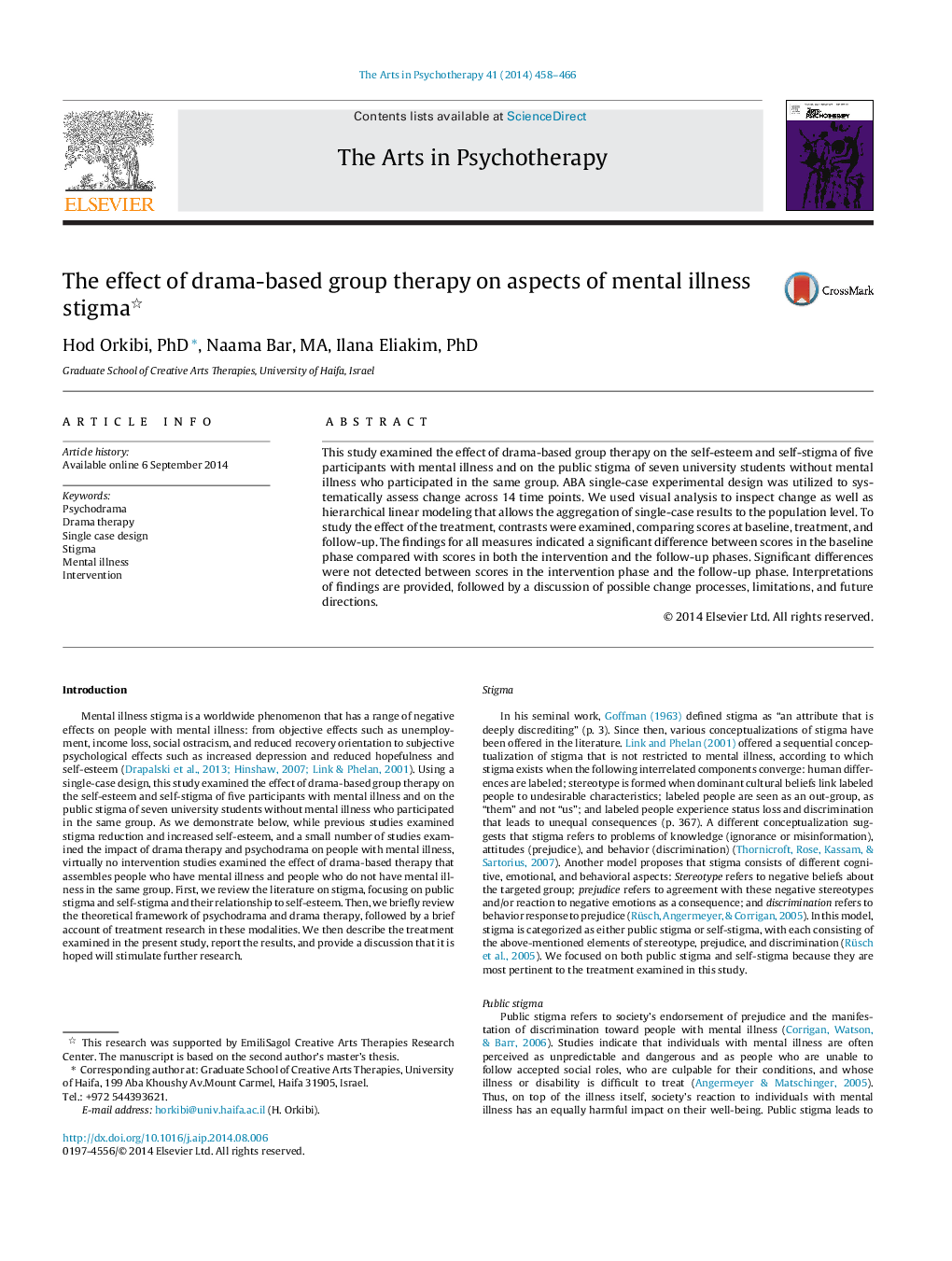| Article ID | Journal | Published Year | Pages | File Type |
|---|---|---|---|---|
| 343598 | The Arts in Psychotherapy | 2014 | 9 Pages |
•We studied the effect of a 20-week drama-based group therapy intervention.•The group included participants with and without mental illness (N = 12).•Self-stigma decreased from baseline to treatment and follow-up phases.•Self-esteem increased from baseline to treatment and follow-up phases.•Student public-stigma decreased from baseline to treatment and follow-up phases.
This study examined the effect of drama-based group therapy on the self-esteem and self-stigma of five participants with mental illness and on the public stigma of seven university students without mental illness who participated in the same group. ABA single-case experimental design was utilized to systematically assess change across 14 time points. We used visual analysis to inspect change as well as hierarchical linear modeling that allows the aggregation of single-case results to the population level. To study the effect of the treatment, contrasts were examined, comparing scores at baseline, treatment, and follow-up. The findings for all measures indicated a significant difference between scores in the baseline phase compared with scores in both the intervention and the follow-up phases. Significant differences were not detected between scores in the intervention phase and the follow-up phase. Interpretations of findings are provided, followed by a discussion of possible change processes, limitations, and future directions.
